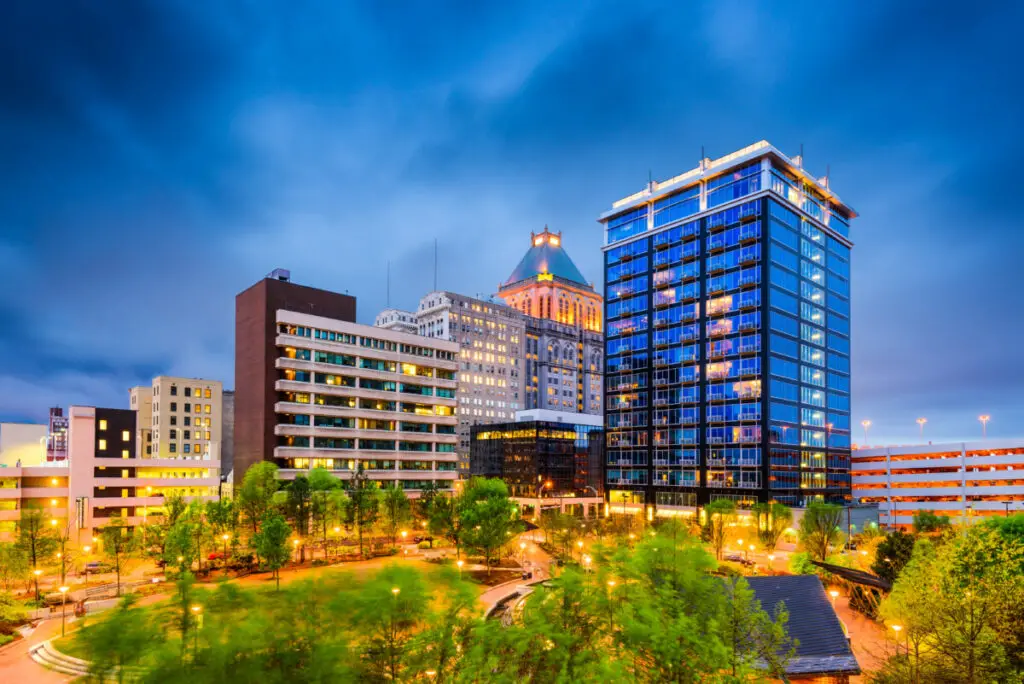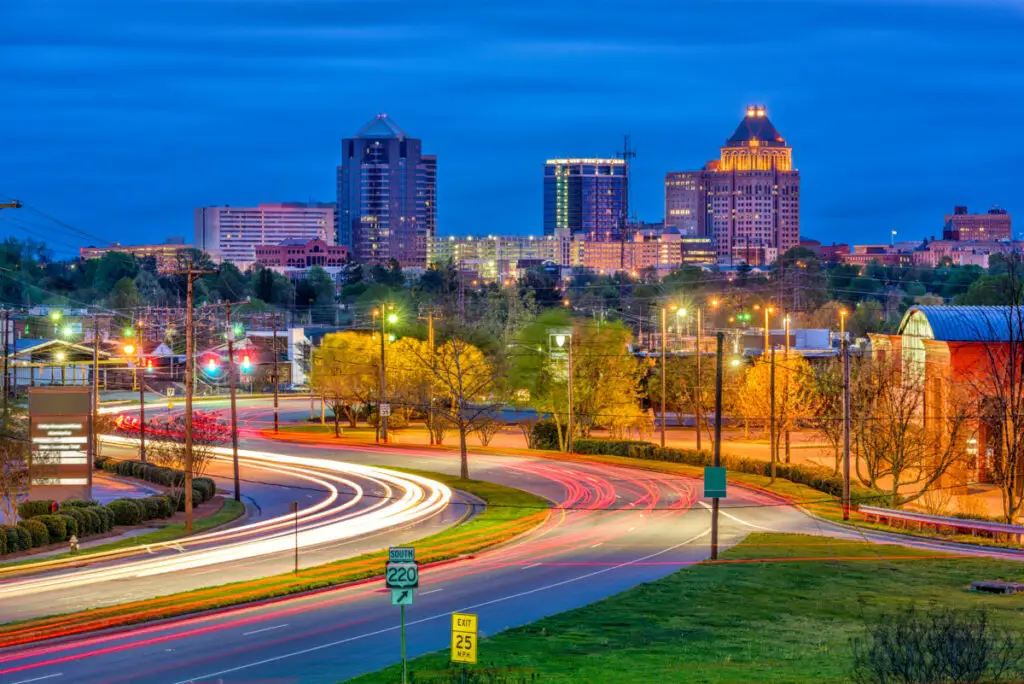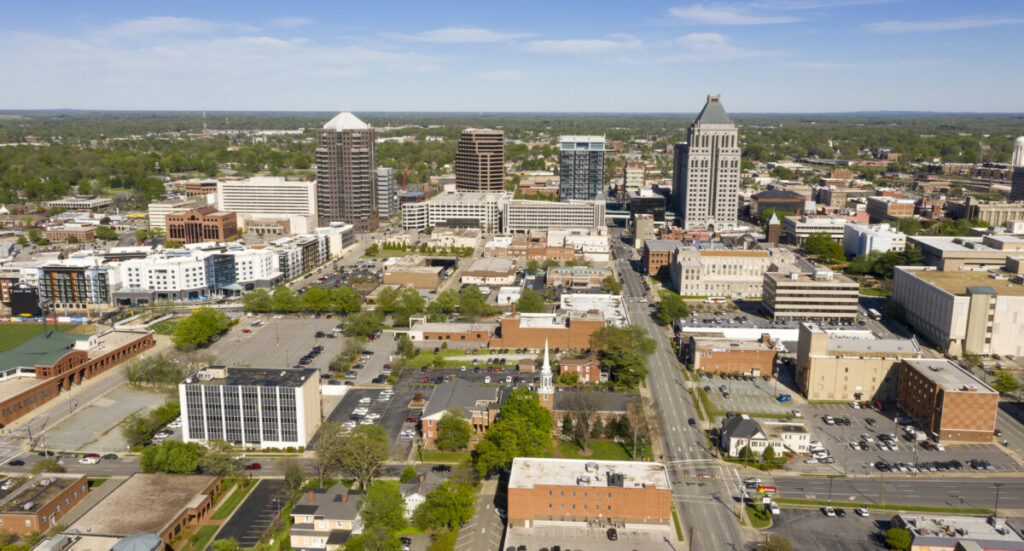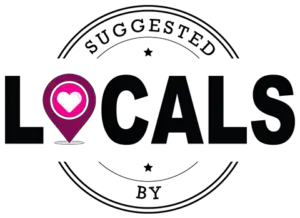
Politics is a source of a lot of controversies these days, and many people want to know that those around them have similar political beliefs to theirs. If you live in Greensboro, North Carolina, are your neighbors more likely to be liberal or conservative?
Greensboro, North Carolina is a moderately liberal city. The majority of residents voted for the Democratic candidates in five of the last six presidential elections. Guilford County, Greensboro’s county, is also moderately liberal, while North Carolina is a swing state that leans conservative.
There are many factors to the political climate of a city. To figure out if Greensboro is liberal, we need to look at the results of presidential elections, the local leaders, the policies, and the demographics of the city.
Presidential Elections
The results of presidential elections in a city are a big indicator of the political climate of the city. The two major political parties in the United States are representative of the liberal and conservative perspectives.
The Democratic party has mostly liberal members and supports liberal policies, while the Republican party has mostly conservative members and supports conservative policies. If the majority of residents in a city vote for the Democratic candidate in an election, the city probably has a liberal majority. If the majority of residents vote for the Republican candidate, the city is mostly conservative.
It is important to look at which candidate won in a certain area, but we also need to consider how much of a margin they won by. A certain percentage of votes in each election is for the Democratic candidate, and another percentage is for the Republican candidate. The difference between these percentages is how much the winning candidate won by. If the difference is high, the candidate won by a lot, meaning that the city is firmly in support of that candidate and is firmly liberal or conservative. If the difference is low, the city is close to being evenly split between liberal and conservative.
North Carolina is a swing state . Most states can be counted on to vote for either the Democratic or Republican candidate. However, swing states have the potential to go either way, though they tend to lean more liberal or conservative. The final results of presidential elections tend to come down to the results in swing states.
. Most states can be counted on to vote for either the Democratic or Republican candidate. However, swing states have the potential to go either way, though they tend to lean more liberal or conservative. The final results of presidential elections tend to come down to the results in swing states.
North Carolina leans conservative. The majority of residents voted for the Republican candidate in every election since 2000 except for 2008. In 2000 and 2004, the differences between the Democratic and Republican votes were around 12%. However, in every election since, the differences were less than 5%, which means the state is close to being evenly split and could be swayed to vote liberal instead of conservative. The highest difference was 12.8% in 2000, and the lowest difference was 0.3 in 2008.
In the 2020 presidential election, 49.9% of North Carolina residents voted for the Republican candidate, while 48.6% voted for the Democratic candidate. The difference between the percentages was 1.3%, which is the second lowest difference after 2008.
Guilford County, the county that Greensboro is in, is moderately liberal . The Democratic candidate won in Guilford County in five of the last six elections. In 2000 and 2004, the difference between the percentage of Democratic and Republican votes was less than 3%. However, in every other election, it was between 15% and 25%. The highest difference was 23.12% in 2020, and the lowest was 0.89% in 2004.
. The Democratic candidate won in Guilford County in five of the last six elections. In 2000 and 2004, the difference between the percentage of Democratic and Republican votes was less than 3%. However, in every other election, it was between 15% and 25%. The highest difference was 23.12% in 2020, and the lowest was 0.89% in 2004.
In the 2020 presidential election, 60.84% of Guilford County residents voted for the Democratic candidate and 37.72% voted for the Republican candidate. The difference was 23.12%, the highest it was during that 20-year period, meaning that Guilford County has gotten more liberal over time.
Greensboro, like Guilford County and unlike the state of North Carolina, is liberal . The Republican candidate won in 2000, but the majority of residents voted for the Democratic candidate in every election since. The difference between the percentage of Democratic and Republican votes was less than 10% in 2000 and 2004, but it was higher than 10% in 2008, 2012, 2016, and 2020. The differences and percentages are comparable to those of Guilford County.
. The Republican candidate won in 2000, but the majority of residents voted for the Democratic candidate in every election since. The difference between the percentage of Democratic and Republican votes was less than 10% in 2000 and 2004, but it was higher than 10% in 2008, 2012, 2016, and 2020. The differences and percentages are comparable to those of Guilford County.
From 2018 to 2021, there were 24,279 contributions to the Democratic party in Greensboro. This added up to $4,473,438. There were only 6,088 contributions to the Republican party during that time, which added up to $5,157,048. Though there were almost four times more contributions to the Democratic party, the Republican party brought in more money. This is because the average size of donations to the Republican party was about 4.5 times larger than the average donation to the Democratic party.
Local Leaders

The local leaders of a city represent the political climate. The people in the city elected them because of their beliefs and promises. Looking at the enacted policies, campaign platforms, and party affiliations of the local leaders of Greensboro can help us to know more about the political climate.
Mayor
The mayor of Greensboro is a very important elected official. The mayor represents the city in state, national, and international matters. The mayor is a member of the city council and leads council meetings as well as city ceremonies.
The current mayor of Greensboro is Nancy Vaughan . She became mayor in 2013, was reelected in 2017, and won the general election in 2022. Her current term will end in 2022, but she may be reelected for another term. In 2017, she won the general elections with 67.06% of the vote, winning by 10,491 votes. She won the 2022 general election with 43.1%, winning by only 425 votes.
. She became mayor in 2013, was reelected in 2017, and won the general election in 2022. Her current term will end in 2022, but she may be reelected for another term. In 2017, she won the general elections with 67.06% of the vote, winning by 10,491 votes. She won the 2022 general election with 43.1%, winning by only 425 votes.
The mayoral elections in Greensboro are nonpartisan, so Mayor Vaughan technically isn’t a member of a political party. However, she has been known to be affiliated with the Democratic party. The policies she has put in place have also support the claim that she is largely liberal.
City Council
The Greensboro City Council is a board of elected officials that serves as the legislative body of the city. The city council adopts the budget, approves the appointees of the mayor, imposes taxes, and creates or changes laws. The city council is made up of nine members, including the mayor. The mayor and three other members are elected by the whole city, while the remaining five are each elected by one of the city’s five districts.
is a board of elected officials that serves as the legislative body of the city. The city council adopts the budget, approves the appointees of the mayor, imposes taxes, and creates or changes laws. The city council is made up of nine members, including the mayor. The mayor and three other members are elected by the whole city, while the remaining five are each elected by one of the city’s five districts.
The city council members are all considered nonpartisan. However, the policies that the city council has enacted support the idea that the majority of city council members are liberal.
Policies
The policies that the residents of the city support are another indicator of the political climate. Certain policies are likely to be supported or opposed by liberals or conservatives. Fewer abortion restrictions, more gun control laws, and legal same-sex marriage are all likely to be supported by liberals and opposed by conservatives.
Abortions
Abortions in North Carolina must be performed before 20 weeks of pregnancy. Patients must receive counseling and ultrasound at least 72 hours before getting an abortion. Health plans, insurance policies for public employees, and public funding cannot cover abortions unless there is life endangerment, rape, or incest involved. The parents of a minor must consent before an abortion can be given to that minor.
of pregnancy. Patients must receive counseling and ultrasound at least 72 hours before getting an abortion. Health plans, insurance policies for public employees, and public funding cannot cover abortions unless there is life endangerment, rape, or incest involved. The parents of a minor must consent before an abortion can be given to that minor.
In 2017, there were 26 facilities providing abortions in North Carolina, 14 of which were clinics. 91% of North Carolina counties do not have clinics, leaving 53% of women without access to an abortion clinic.
Greensboro residents tend to support a decrease in abortion restrictions, which is consistent with a liberal perspective.
Gun Control Laws
North Carolina had the 21st-highest gun death rate and the 28th-highest crime gun export rate in 2020. North Carolina gun laws include gun owner licensing, domestic violence gun laws, child access prevention laws, and state database background checks. North Carolina gun laws do not include universal background checks, assault weapons or large capacity magazine restrictions, concealed or open carry regulations, or lost/stolen firearm reporting.
gun owner licensing, domestic violence gun laws, child access prevention laws, and state database background checks. North Carolina gun laws do not include universal background checks, assault weapons or large capacity magazine restrictions, concealed or open carry regulations, or lost/stolen firearm reporting.
Greensboro residents tend to support an increase in gun control laws, which is consistent with a liberal perspective.
Same-Sex Marriage
North Carolina legalized same-sex marriage on October 10, 2014 , and was the 28th state to do so. This was about eight months before the Supreme Court mandate requiring all states to legalize same-sex marriage. Greensboro residents tended to support the legalization of same-sex marriage, which is consistent with a liberal perspective.
, and was the 28th state to do so. This was about eight months before the Supreme Court mandate requiring all states to legalize same-sex marriage. Greensboro residents tended to support the legalization of same-sex marriage, which is consistent with a liberal perspective.
Demographics

The population of Greensboro is about 297,878 people. The population density is 2,311 people per square mile. 53.4% of the population is female and 46.6% is male. The median age is 34.4 and the average number of people per household is 2.3.
of Greensboro is about 297,878 people. The population density is 2,311 people per square mile. 53.4% of the population is female and 46.6% is male. The median age is 34.4 and the average number of people per household is 2.3.
The racial makeup of Greensboro is as follows:
of Greensboro is as follows:
- White: 44.0%
- Black: 41.4%
- Hispanic/Latino: 7.3%
- Asian: 4.4%
- Native American: 0.3%
- Hawaiian/Pacific Islander: 0.1%
- Two or More Races: 2.1%
- Other: 0.4%
The average income in Greensboro is $25,729 per year. The median household income is $41,518 per year. The unemployment rate is 5.6%.
in Greensboro is $25,729 per year. The median household income is $41,518 per year. The unemployment rate is 5.6%.
89.9% of Greensboro residents are high school graduates, but 22.7% are only high school graduates. 23.5% have two-year degrees, 37.4% have four-year degrees, 2.4% have master’s degrees, and 1.9% have professional degrees.
of Greensboro residents are high school graduates, but 22.7% are only high school graduates. 23.5% have two-year degrees, 37.4% have four-year degrees, 2.4% have master’s degrees, and 1.9% have professional degrees.
